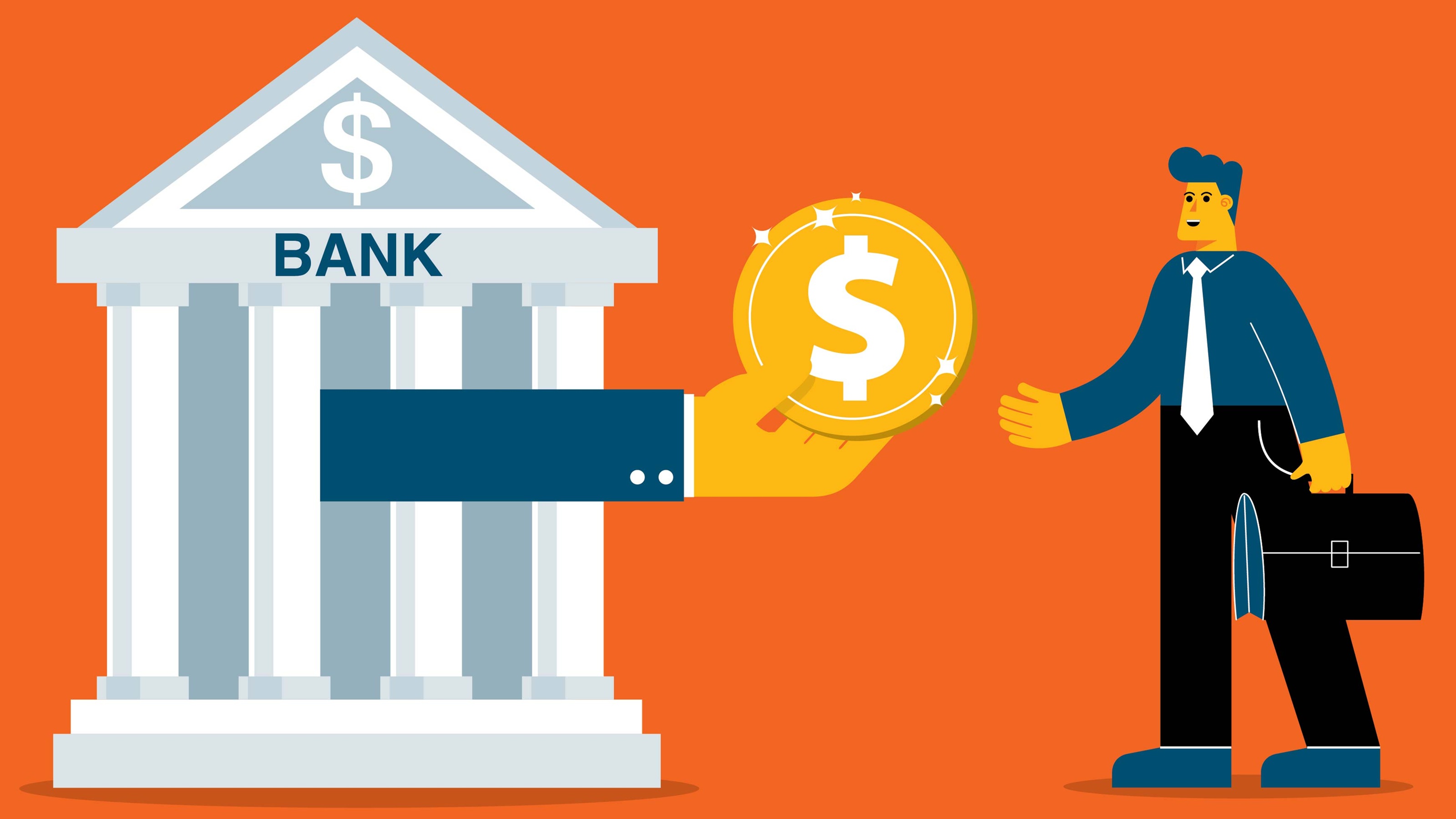Five Thoughts About the Election and Your Money From a Financial Planner
Here are some predictions, based on a lot of historical evidence, about what’s coming in relation to your money as we approach the election.


I learned the “bar rules” of personal finance early on in my career: Don’t talk to clients about politics or religion. I violate the first rule frequently because, in the interconnected world we live in, how could I not? We will vote in November, which is coming up fast, and it’s natural to think about how the outcome of the election could impact our economy, our markets and, therefore, your money.
Below are five predictions, based on a lot of historical evidence, about what’s coming as we approach the election. (I am fully prepared for this not to age well.)
1. Don’t bet on any big tax policy ideas coming to fruition.
In writing this, I scrolled through old tax classes I taught during three different administrations, including campaign years. My conclusion was that I wasted an insane amount of time learning about tax policy promises that never came to fruition. In the last presidential election, proposals were floated to increase taxes on those earning more than $400,000. It never happened. There were proposals to tax capital gains at 39.6% for those earning more than $1 million. It never happened. There were proposals to get rid of the step-up in basis on capital assets. Guess what? It never happened.

Sign up for Kiplinger’s Free E-Newsletters
Profit and prosper with the best of expert advice on investing, taxes, retirement, personal finance and more - straight to your e-mail.
Profit and prosper with the best of expert advice - straight to your e-mail.
With Congress so tightly divided, it’s tough to imagine either candidate getting into office and passing any sort of meaningful tax policies. The counterpoint to this would be when former President Donald Trump was able to overhaul the tax code and implement the Tax Cuts and Jobs Act (TCJA). He was able to make that happen through reconciliation while the Republicans controlled the House, Senate and White House. He also was forced to make the provisions that affect individuals temporary due to the Byrd Rule’s restrictions on reconciliation legislation. With an ever-growing deficit, reducing taxes on overtime and tips and giving all first-time homebuyers a big credit seem like nonstarters.
2. The weeks until we get an election result are the storm. The result is the sunrise.
You may have heard the saying that “markets are not red or blue, they are green.” They don’t care who’s in office; they care only about what the policies will be. This is reflected in market performance leading up to Election Day vs market performance coming out of the election.
In every election year since 1980, except for two, markets moved higher after Election Day. The two exceptions were 2000 and 2008, thanks to the tech bubble and the Global Financial Crisis.
3. The election result won’t dictate which sectors do well.
Every election cycle, every investment house, bank and hedge fund puts out an analysis of which sectors will do well based on who’s elected.
One thing I have heard repeatedly from former President Donald Trump during this election cycle is “Drill, baby, drill!” However, from 2016 to 2020, the U.S. energy index actually went down, while the clean energy index went up. President Joe Biden campaigned on a clean energy agenda and backed it up with significant incentives in the Inflation Reduction Act. During his term, the U.S. energy index has gone up, and the clean energy index has come down.
Sectors typically perform well or poorly based on the stage of the economic cycle we are in, as well as other macro factors. Buying real estate because you think Trump is going to win may not be wise.
4. Both candidates are bad for the federal budget.
Traditionally, we think of Democrats as spending more and taxing more. Republicans want to tax less and spend less. Most of the proposals we have seen from both sides are "spend more and tax less."
A key issue for voters and the markets is taxes. The TCJA, which went into effect in 2018, has two components: corporate and individual. The corporate side is permanent. The individual side is temporary because making it permanent would have created too big a deficit to pass the bill. One of Trump’s biggest talking points is making the tax cuts permanent. Democrats want to do the same thing for everyone making more than $400,000. In both cases, the taxes would be lower than they would be if those provisions of the TCJA are allowed to expire.
Imagine a scenario where your expenses get a bit out of hand for a few years. At the same time, interest rates rise, and all of the sudden, you are in a hole that seems impossible to get out of. This is sort of what has happened with our federal budget. We have continued to spend more than we bring in at the same time that interest rates rose from 0% to 5.5%. Raising taxes and reducing spending are considered political suicide, but we need to find a way to do it.
5. We need immigration.
Both candidates are talking tough on immigration. I get it. Our southern border has been a mess. However, economically, we need immigration for (at least) three reasons:
- Our labor force is too small. Our labor force shrank dramatically during the pandemic for two reasons: A lot of Baby Boomers called it quits, and immigration all but froze. When you have too few people in the labor force, employers overpay for labor. When employers overpay for labor and you end up with a bit more change in your pocket, paying twice as much for the same number of eggs doesn’t sting quite as much. When you are willing to pay those higher prices, we get inflation.
- It’s good for growth. We measure economic growth in the U.S. by gross domestic product. Two large components of GDP are the labor force and consumption, both of which are increased by immigrants. Additionally, immigrants are more likely to start businesses than native-born citizens.
- Social Security needs the contributions. Over the years, there have been all sorts of proposals to increase the solvency of Social Security. None of them has really gotten traction except for continuing to raise the cap on the wages that are subject to taxes. One thing that would certainly hurt the solvency of an already fragile system is a significant slowdown in immigration. You see, most undocumented workers pay into Social Security. They must have these taxes withheld if they receive a paycheck. It’s not something that can be adjusted down on a W-4, like income taxes. However, undocumented workers cannot receive benefits. Imagine these folks putting quarters in the gumball machine, but they don’t get a gumball and therefore don’t reduce the number of gumballs available for everyone else.
Here's the good news: Even if the election doesn’t go your way, your financial success is in your hands. Whether you have enough — it will last and those you love will be taken care of if something happens — is based on the decisions and the planning that you have done. If you want to make sure you’re in a good situation, you can use a free version of our planning software.
Related Content
- Five Tips for Managing Investments Before the Election
- Estate Planning Strategies to Consider as Election Nears
- What Investors Should Keep in Mind This Election Season
- How Will the 2024 Election Impact Your Retirement?
- Red vs Blue: Staying the Financial Course During an Election
Profit and prosper with the best of Kiplinger's advice on investing, taxes, retirement, personal finance and much more. Delivered daily. Enter your email in the box and click Sign Me Up.

After graduating from the University of Delaware and Georgetown University, I pursued a career in financial planning. At age 26, I earned my CERTIFIED FINANCIAL PLANNER™ certification. I also hold the IRS Enrolled Agent license, which allows for a unique approach to planning that can be beneficial to retirees and those selling their businesses, who are eager to minimize lifetime taxes and maximize income.
-
 Callable CDs Have High Rates. We Still Don't Recommend You Get Them
Callable CDs Have High Rates. We Still Don't Recommend You Get ThemInvestors must carefully consider the trade-offs, as falling interest rates could lead to reinvestment at a lower yield and make selling on the secondary market difficult.
-
 High Mortgage Rates Are Holding My Retirement Hostage: Can I Still Downsize and Retire?
High Mortgage Rates Are Holding My Retirement Hostage: Can I Still Downsize and Retire?We ask retirement wealth advisers what to do.
-
 Five Big Beautiful Bill Changes and How Wealthy Retirees Can Benefit
Five Big Beautiful Bill Changes and How Wealthy Retirees Can BenefitHere's how wealthy retirees can plan for the changes in the new tax legislation, including what it means for tax rates, the SALT cap, charitable giving, estate taxes and other deductions and credits.
-
 Portfolio Manager Busts Five Myths About International Investing
Portfolio Manager Busts Five Myths About International InvestingThese common misconceptions lead many investors to overlook international markets, but embracing global diversification can enhance portfolio resilience and unlock long-term growth.
-
 I'm a Financial Planner: Here Are Five Smart Moves for DIY Investors
I'm a Financial Planner: Here Are Five Smart Moves for DIY InvestorsYou'll go further as a DIY investor with a solid game plan. Here are five tips to help you put together a strategy you can rely on over the years to come.
-
 Neglecting Car Maintenance Could Cost You More Than a Repair, Especially in the Summer
Neglecting Car Maintenance Could Cost You More Than a Repair, Especially in the SummerWorn, underinflated tires and other degraded car parts can fail in extreme heat, causing accidents. If your employer is ignoring needed repairs on company cars, there's something employees can do.
-
 'Drivers License': A Wealth Strategist Helps Gen Z Hit the Road
'Drivers License': A Wealth Strategist Helps Gen Z Hit the RoadFrom student loan debt to a changing job market, this generation has some potholes to navigate. But with those challenges come opportunities.
-
 Financial Pros Provide a Beginner's Guide to Building Wealth in 10 Years
Financial Pros Provide a Beginner's Guide to Building Wealth in 10 YearsBuilding wealth over 10 years requires understanding your current financial situation, budgeting effectively, eliminating high-interest debt and increasing both your income and financial literacy.
-
 You're Divorced, But the Work Isn't Over: A Guide to Five Financial Tasks to Do ASAP
You're Divorced, But the Work Isn't Over: A Guide to Five Financial Tasks to Do ASAPOnce your divorce is settled, don't waste time. You've got to tie up some important loose ends or risk losing money and facing tax consequences.
-
 Five Mistakes to Avoid in Your First Year of Retirement
Five Mistakes to Avoid in Your First Year of RetirementRetirement brings the freedom to choose how to spend your money and time. But choices made in the initial rush of excitement could create problems in the future.